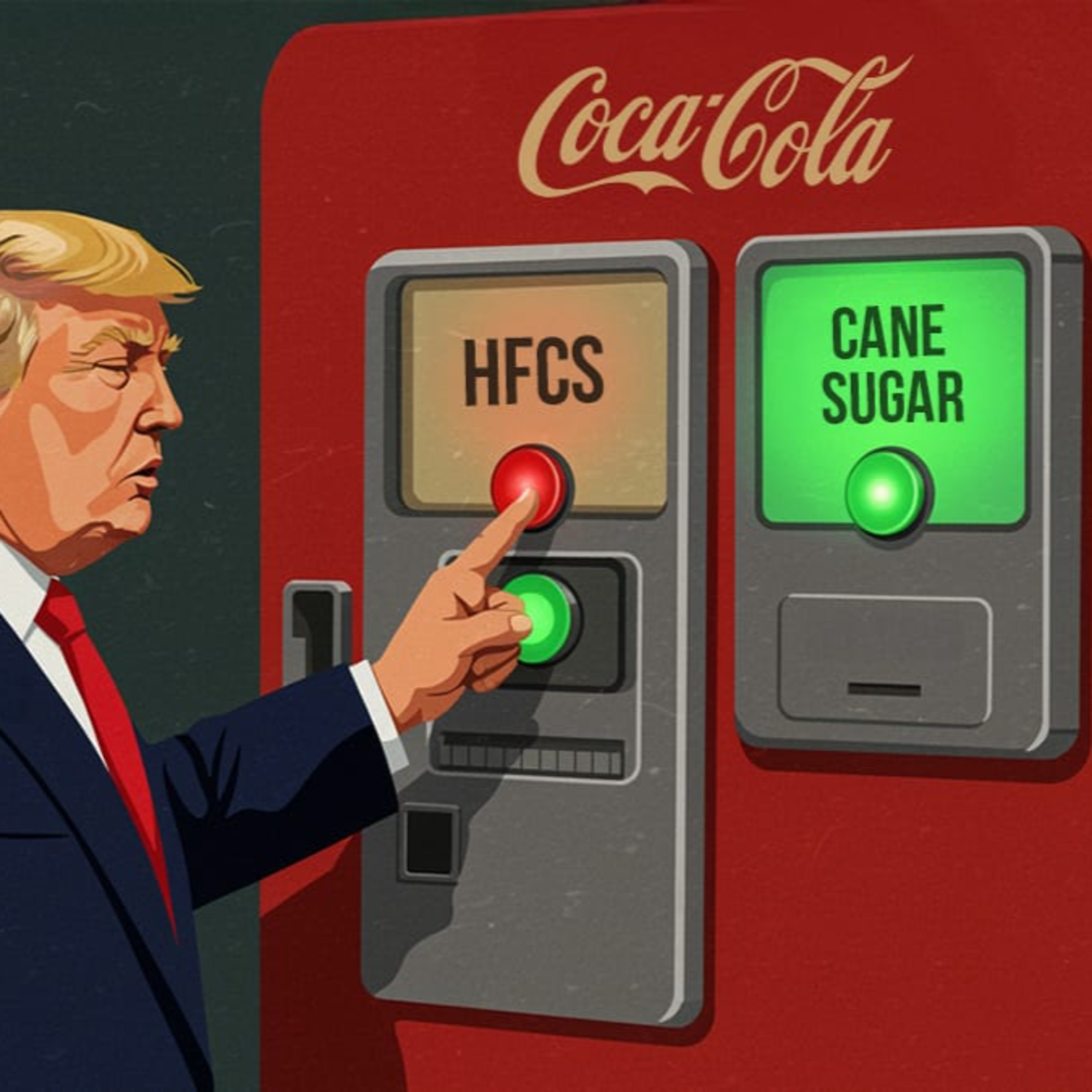Trump vs. Coca-Cola's Secret Ingredient
The Main Idea in a Nutshell
- Donald Trump's idea to force Coca-Cola to use real sugar instead of corn syrup might sound healthy, but it probably wouldn't make people healthier and could cause big problems for American farmers and the economy.
The Key Takeaways
- Trump's Big Idea: He wants to make America healthier by getting companies like Coca-Cola to stop using high-fructose corn syrup (HFCS) and switch back to "good old cane sugar."
- Not a Health Miracle: Switching from corn syrup to sugar isn't a big health upgrade because your body processes them in almost the exact same way; the real issue is how much sugary stuff people consume overall.
- A Big Mess for the Economy: This switch would be a huge problem because the U.S. grows tons of cheap corn but not enough sugar. It could make Coke more expensive, hurt corn farmers, and require more imports, which goes against Trump's other policies.
Fun Facts & Key Numbers:
- Fact: Donald Trump reportedly drinks 12 cans of Diet Coke a day.
- Fact: Nearly 40% of adults in the U.S. are obese.
- Fact: Switching to sugar could cost Coca-Cola an extra $800 to $900 million a year.
- Fact: Corn farmers could lose between $2 to $7 billion if companies stop using corn syrup.
Important Quotes, Explained
- Quote: "> ...swapping HFCS for cane sugar might sound like a health upgrade, but biologically speaking, it doesn't change much."
- What it Means: The author is saying that even though "cane sugar" sounds more natural and healthy than "high-fructose corn syrup," they are chemically almost identical. Both are made of glucose and fructose, and your body treats them pretty much the same.
- Why it Matters: This is the core argument against Trump's plan. It shows that the main reason for the proposed change—to make people healthier—is based on a misunderstanding. The real health problem isn't the type of sugar, but the huge amount of it in our diets.
The Main Arguments (The 'Why')
- First, the author argues that the health benefits are tiny. Both corn syrup and sugar are loaded with fructose, which is hard on your liver and can lead to weight gain and diseases like diabetes when you have too much. Switching from one to the other is like swapping a cheeseburger for a slightly different cheeseburger—it doesn't solve the main problem.
- Next, they explain why companies use corn syrup. The U.S. government has been paying farmers to grow massive amounts of corn for decades. This created a giant surplus, making corn syrup incredibly cheap—much cheaper than sugar. Companies like Coke use it simply to save money.
- Finally, they point out that forcing a switch to sugar would be an economic disaster. The U.S. doesn't produce nearly enough sugar to meet demand, so prices would shoot up. This would hurt companies' profits, make soda more expensive for you, and could cost thousands of jobs in the corn industry.
Questions to Make You Think
- Q: Is cane sugar actually healthier than high-fructose corn syrup?
A: According to the text, not really. The text says the health benefits of switching are "marginal" (meaning very small). Both are bad for you in large amounts because they contain similar levels of fructose, the part of sugar that can cause health problems.
Q: If corn syrup is so unpopular, why does Coke use it in the U.S.?
- A: The text explains it's all about cost. Because the U.S. government has long supported corn farming, corn is super abundant and cheap. This makes corn syrup almost half the price of cane sugar, so companies use it to keep their costs down.
Why This Matters & What's Next
- Why You Should Care: This story is a perfect example of how a simple-sounding political promise can have huge, complicated consequences. It shows how the government, big companies, and what we eat are all connected. It makes you think about what's really in your food and why it's there.
- Learn More: If you find this interesting, check out the documentary "Food, Inc.". It dives deep into the American food industry and explains the massive role that corn plays in almost everything we eat, from sodas to meat.

